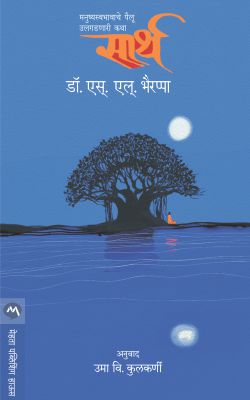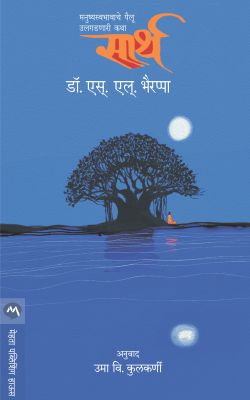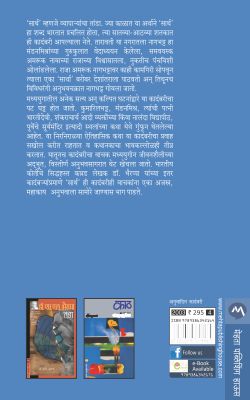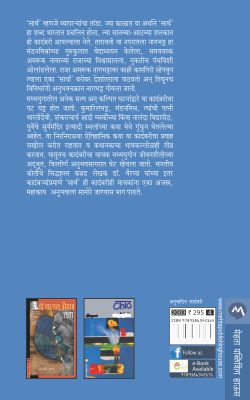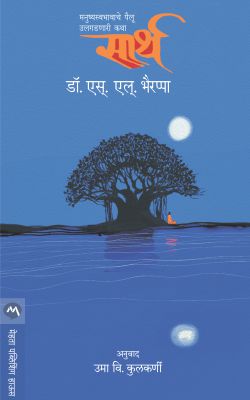SARTH
SARTH is backordered and will ship as soon as it is back in stock.
Couldn't load pickup availability
Genuine Products Guarantee
Genuine Products Guarantee
We guarantee 100% genuine products, and if proven otherwise, we will compensate you with 10 times the product's cost.
Delivery and Shipping
Delivery and Shipping
Products are generally ready for dispatch within 1 day and typically reach you in 3 to 5 days.
Details:
• Translators: Uma Kulkarni
• ISBN: 9789386342164
• Edition: 5
• Publishing Year: December 2003
• Pages: 276
• Language: Translated from Kannada to Marathi
• Category: Fiction
• Binding: Paperback
• Publisher: Mehta Publishing House
About the Book:
Sartha literally means a trading caravan. In ancient India, such caravans would travel to distant lands to trade with them. This remarkable novel works on two planes simultaneously. It is both a physical journey across India and a spiritual inward journey of an eighth-century scholar born into a tradition of Vedic studies.
Nagabhatta, the scholar, is deputed by King Amaruka to study the secrets of caravans from other lands in order to improve the economy of his kingdom. During his extensive travels, Nagabhatta becomes a witness to and comes under the influence of numerous religious, social, and cultural modes. Unusual experiences and peoples are depicted in a time of historical change in India.
The novel is the result of a deep and extensive study of history and research conducted at actual locales, like Nalanda. It creatively explores the roots of conflicting religious beliefs that India has long faced. Bhyrappa is well-known for his profound study of philosophical questions. In Sartha, he goes back in time to recreate the atmosphere of a bygone era with authenticity that is his hallmark.
Through this gripping narrative, a vast panorama of the past unfolds. It is a novel rich in details about eighth-century India, offering readers a unique and strange experience—especially for those uninitiated into the wealth and diversity of India from over a thousand years ago. Sartha can be discussed on several levels: it is a historical novel par excellence, defying the Western critics' opinion that Indian fiction lacks historical sense. On another level, it is a picaresque novel, centered on the escapades of the protagonist. On yet another plane, it is a metaphysical novel, dealing with the philosophy of Advaitic thought. Finally, it is a romance, a very readable story about the true love of Nagabhatta and Chandrika.

